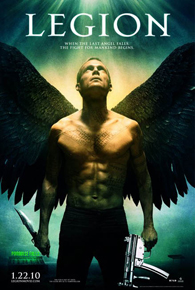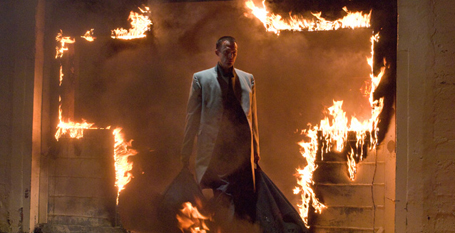 ]
]Conservative preachers are inclined towards blaming the decline and fall of modern civilisation on early exposure to anime and manga. From Evangelion, when God begins the Final Judgement on mankind, angels will be sent down to commit genocide – preferably in the form of giant robots. From Angel Sanctuary, angels could be amoral, heartless, heart breakingly beautiful and perverted – just the kind of role model a growing boy needed. (The rest, as they say, is history)
I’ll venture that if the creators of Evangelion and Angel Sanctuary were in charge of evangelism, we could see an explosion in spirituality and church attendance. In fact, I lost my believe when I realise that angels weren’t supposed to be ambiguously gay and malevolently badass – though there was a brief moment when my belief was rekindled by the excellent The Prophecy, which was just about the only Hollywood movie to best the Japanese at their own game. It starred Christopher Walken as the Archangel Gabriel waging a civil war in heaven against God, and Viggo Mortensen as the Devil!
Shockingly, Legion is Hollywood’s second ever attempt at creating an alternative theology. To put it briefly, God enacts his Final Judgement on mankind, sending angels to commit genocide, with a key mission to murder the Second Coming of Christ – preferably when he’s still an unborn child. The archangel Michael (Paul Bettany) rebels against heaven, arms himself with loads of firearms and sets off to protect the modern Mary and Joseph.
What first-time director Stewart does is to take this alternative theology and merge it with modern horror film aesthetics. The angels, for example, carry out their work by possessing human beings and turning them into zombies and putrefying monsters. This makes for excellent visuals, but how this fits into the lore of this fictional universe (presumably it is Michael who falls, not the heavenly host or God) is unclear.

